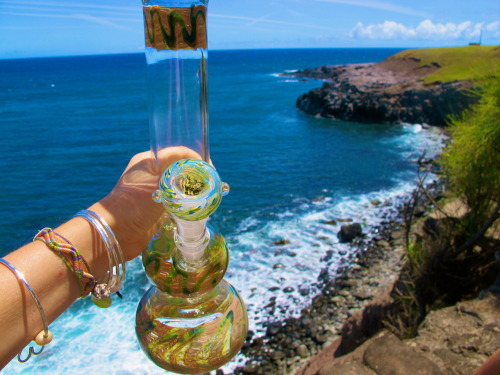Hawaii to Open Medical Marijuana Access to International Visitors by Next Year
Patients who use medical marijuana and travel frequently often face restrictions that prevent them from bringing their medicine with them. Transporting marijuana across state lines, even for those with a medical card, is a federal crime. Meanwhile, Hawaii continues to attract tourists year after year. In 2016, the state welcomed 8,934,277 visitors, with American tourists making up about 60 percent. The 2,500-mile distance between Hawaii and the nearest U.S. state with legal medical marijuana means many visiting patients have no access to their medicine while on the islands.
However, a new policy is set to change that. Hawaii plans to implement a process allowing holders of medical marijuana cards from other states to purchase products in Hawaii.
Hawaii to Launch Medical Marijuana Program for Visitors
By next year, Hawaii aims to let visitors to the islands purchase medical marijuana from licensed dispensaries. However, you won’t be able to enter a dispensary with just an out-of-state medical marijuana card. Instead, you’ll need to apply for a special temporary registration card. Eligibility for this card is not based on your home state’s qualifications. To qualify, you must meet Hawaii’s own medical marijuana requirements.
Temporary patient registration cards will cost about $50—specifically, $45 plus a $4.50 processing fee, according to sources. Out-of-state patient cards will be valid for only 60 days. After that, patients can reapply, but many will have returned home or obtained a Hawaii card by then.
Will Other States Follow Hawaii’s Lead on Reciprocity?
Back in March, Hawaii’s House of Representatives passed a bill paving the way for medical marijuana access for hospitalized patients. At the time, the bill was seen as a “reciprocity” measure. Hawaii would allow patients from other states to buy and use medical marijuana if those states did the same for Hawaii residents.
Now, however, officials are no longer using the term “reciprocity.” Still, Hawaii’s approach could offer an alternative model for states hesitant to adopt full reciprocity but interested in allowing visitors with serious conditions to access and use medical marijuana.
Of the 31 states, plus Washington D.C., Guam, and Puerto Rico, that have legalized medical marijuana, only three issue cards that grant access to state dispensaries for out-of-state patients. Only two—Delaware and Rhode Island—actively use them, as Nevada has legalized adult-use marijuana instead.
Hawaii health officials estimate that 5,000 visitors will use the program in its first year. As the state’s medical marijuana infrastructure grows, that number could rise to 30,000 annually, according to officials. Even if just one patient can access their life-saving medicine while away from home, officials believe the new rule will be worth it. The next step for Hawaii’s marijuana regulators is to create an online application process.



